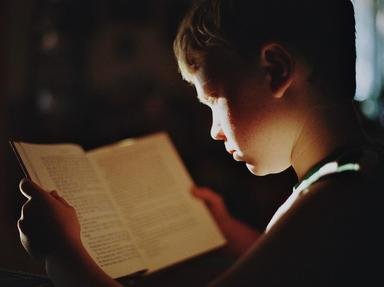
The Right to Write Trivia Quiz
Many great literary works have been banned in the U.S. (as well as other countries) over the years. Can you match the following controversial yet worthy books with the authors who wrote them, all of whom were exercising their "right to write"?
A matching quiz
by shuehorn.
Estimated time: 3 mins.